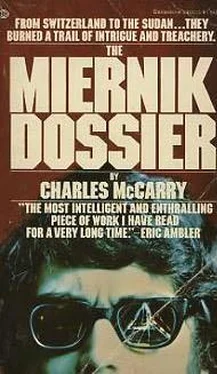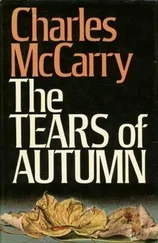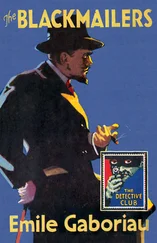My lover and I went to an extraordinary party on Sunday night. Our host was M. (You remember that you thought you knew this man.) He became very drunk and did a wild dance, spinning like a trained bear with me in his arms. It was quite exhilarating, in a way. However, M. has the most extraordinary body odor I have ever smelled. It rose from him in waves. The stink pulsed; it was almost visible. The police came and our host insulted them. I am afraid that there will be repercussions. It was silly, because the policeman meant to do nothing except warn about the noise. Yet M. made a terrible fuss. It was ugly, self-destructive. I thought that he must have wanted trouble. Perhaps that is too fanciful-I am studying abnormal psychology at the moment.
I made the mistake of being sympathetic to M. I even kissed him, in a sisterly way, as he lay panting on the floor after our dance. Now, to my astonishment, he has phoned to ask if I will dine with him. He is a friend of my little friend’s. Men are such traitors! His company is very dull. Nevertheless, I said that I would go out to a restaurant with him. It may be interesting. I wonder what the effect would be if I told my lover of this engagement. Of course I shall not tell him. Let him be spared the suspicion he has caused me. It will be amusing to deceive him a little with a man who smells like a corpse. If anything truly amusing happens, I shall write to tell you all about it.
Always your affectionate friend,
[signed] Annelise
16. REPORT TO WASHINGTON BY THE AMERICAN CHIEF OF STATION IN GENEVA (22 MAY).
1. It is our preliminary judgment, based on Christopher’s reporting and certain other information, that Tadeusz Miernik is attempting to defect to a Western country for operational reasons dictated by the Polish intelligence service. The possibility that the Soviets may be involved in this operation cannot be ignored.
2. Miernik is conducting a stagy show of despair for the benefit of Christopher and other Westerners (e.g., Nigel Collins and Léon Brochard, both of whom are assumed to be agents of their respective national intelligence services). Miernik’s intention seems to be to arouse the sympathy of his friends on a personal level, and the interest of their intelligence services on an official level. The technique has been used before by the Poles. The elaborate nature of the “trimmings” (representations to the WRO by the Polish ambassador, the convenient expiration date of Miernik’s passport, the alleged existence of a hostage sister in Poland) is characteristic of Polish operations.
3. Outside of his personal contacts with Christopher and his other friends, Miernik has behaved in a most rational manner. He has continued to function in his job. He has arranged an assignation with Collins’ mistress (though the reason behind this may be operational, it’s possible that the girl is his cutout). Except for the breakdowns in personal discipline that Christopher has conveniently witnessed and reported, Miernik has maintained his normal schedule and his usual behavior, with two significant exceptions.
4. These two exceptions are his clandestine meeting with Kirnov in the early hours of the morning and his telephone call to Warsaw a little later the same morning. Many of the phrases in this conversation, ostensibly with his sister, could be construed to be a code for telephone use (“There is snow in the Alps,” etc.). If our assumption is correct that Kirnov is a Soviet agent, then there is only one logical explanation for his meeting with Miernik. If Kirnov is clean, then there really is no explanation why he should call on Miernik between three and four o’clock in the morning and spend the entire visit pounding on a typewriter.
5. It can be assumed that Miernik has some immediate operational assignment that depends on a successful defection. If his defection were authentic, or if he were being defected as a longterm asset to the Poles, he would presumably just walk into an embassy and ask for asylum.
6. Please advise whether we should attempt to determine Miernik’s possible assignment through closer surveillance, including audio surveillance of his apartment and telephone.
17. TRANSCRIPTION OF A CONVERSATION BETWEEN MIERNIK AND ILONA BENTLEY (LISTENING DEVICE LOG; 26 MAY).
(Door opens and closes. Indistinct voices of two subjects. Sound of ice tray being emptied. etc.)
MIERNIK: I behaved very badly to Inge. I’m sure Léon is angry.
BENTLEY: Why should he be? Everyone has strong feelings. Léon understands that, if anyone does.
MIERNIK: But the French are so preoccupied with themselves.
BENTLEY: I suppose that the Poles are not. Or the English, or the Eskimos. You shouldn’t whip yourself, Tadeusz.
MIERNIK: Humanity should make a treaty with itself never to talk about the Germans.
BENTLEY: I’ll sign it.
MIERNIK: You must have more feeling about them than you let on. I can’t believe…
BENTLEY: As I said, I was young.
MIERNIK: But old enough to remember.
BENTLEY: When I am reminded, yes.
MIERNIK: I’m sorry. We’ll talk about other things. The Polish Question.
BENTLEY: That hasn’t been answered?
MIERNIK: Not for the Poles. You know the story about the Frenchman, the Englishman, the American, and the Pole who were asked to write about elephants? The Frenchman wrote about the sexual life of the elephant, the Englishman about the way the elephant treated small dogs, the American about the mass production of elephants. The Pole wrote a twenty-thousand-word monograph entitled “The Elephant and the Polish Question.”
BENTLEY: (Laughs.)
MIERNIK: You are extremely beautiful.
BENTLEY: When I laugh?
MIERNIK: At all times. Was your mother dark like you?
BENTLEY: Yes. My father was fair, like Nigel. English fairness.
MIERNIK: As soon as I say you are beautiful, you mention Nigel.
BENTLEY: That is the Hungarian part of me. Subtle.
MIERNIK: I like Nigel very much. I wonder if you do not find him frivolous.
BENTLEY: Why should I? He’s sort of solemn.
MIERNIK: That side of him I have never seen, except when he is doing his job. Then he has the Foreign Office manner. He glows with secrets, there is a dynamo of class privilege smoking under his good manners. But at all other times he does nothing but joke.
BENTLEY: They learn all that at school in England. It means nothing.
MIERNIK: You find it attractive?
BENTLEY: I find it irrelevant.
MIERNIK: In Nigel’s case only, or in the English as a whole?
BENTLEY: I’m English.
MIERNIK: Half.
BENTLEY: Half, then. But I don’t notice English manners particularly. I notice yours.
MIERNIK: Mine? Why?
BENTLEY: Because they are different from my own.
MIERNIK: And from Nigel’s?
BENTLEY: Yes. He would never mention any unhappiness he may have had. You mention little else. It’s a difference in cultures more than personality.
MIERNIK: Perhaps he has never been unhappy in the way that I have been unhappy.
BENTLEY: Nonsense. Everyone is unhappy.
MIERNIK: Even you?
BENTLEY: Even I.
MIERNIK: Even the beautiful are unhappy. That is very disillusioning.
BENTLEY: You’re an idiot.
MIERNIK: No, it’s important that the ugly, the miserable believe that the beautiful are serene.
BENTLEY::What an idea. The Edwardians thought that nothing gave the poor greater pleasure than the sight of a rich man. That’s an odd viewpoint for a modern Communist.
MIERNIK: You think I’m a Communist?
BENTLEY: Well, aren’t you?
MIERNIK: No.
BENTLEY: Why on earth not?
MIERNIK: Why on earth should I be?
BENTLEY: The Polish Question. Surely that’s a Communist question from now on?
Читать дальше












